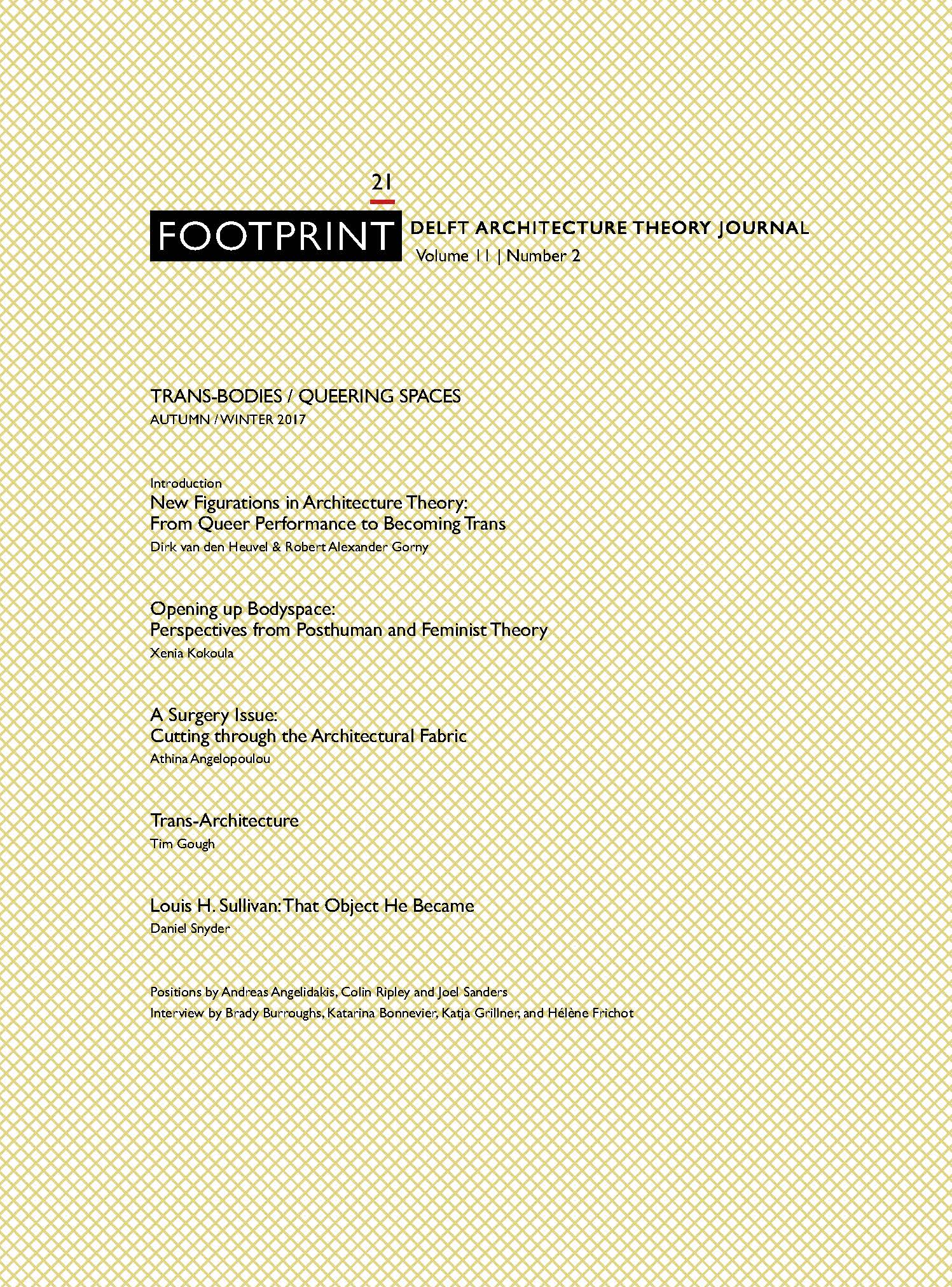Strategies for Living in Houses
DOI:
https://doi.org/10.7480/footprint.11.2.1903Abstract
The problem of queer housing can never go away because it is a central component of queerness. Queer housing is a contradiction in terms: not even a queer architect can design a queer house. But where does this leave us, as queer people living in a straight hegemony? Where does it leave us as humans with bodies, craving shelter and safety and a place to live that is in accordance with our experience of self and of living in the world? In this article the author proposes eight architectural strategies for re-occupying the Levittown Cape Cod house from 1947 for queer bodies, minds and hearts. These strategies offer modes by which the key programmatic formal and material components of the Cape Cod House can be attacked, made invalid, or détourned for queer uses, to make of the Cape Cod House a site for our pain, our longing, our anger.
References
International Commission of Jurists (ICJ). Yogyakarta Principles - Principles on the application of international human rights law in relation to sexual orientation and gender identity, March 2007. Available online at: http://www.refworld.org/docid/48244e602.html
McCarthy, Timothy Patrick, and John Campbell McMillian (eds.). The Radical Reader: A documentary history of the American radical tradition. New York: The New Press, 2003.
Downloads
Published
Issue
Section
License
- Authors retain copyright and grant the journal right of first publication with the work simultaneously licensed under a Creative Commons Attribution License that allows others to share the work with an acknowledgement of the work's authorship and initial publication in this journal.
- Authors are able to enter into separate, additional contractual arrangements for the non-exclusive distribution of the journal's published version of the work (e.g., post it to an institutional repository or publish it in a book), with an acknowledgement of its initial publication in this journal.




